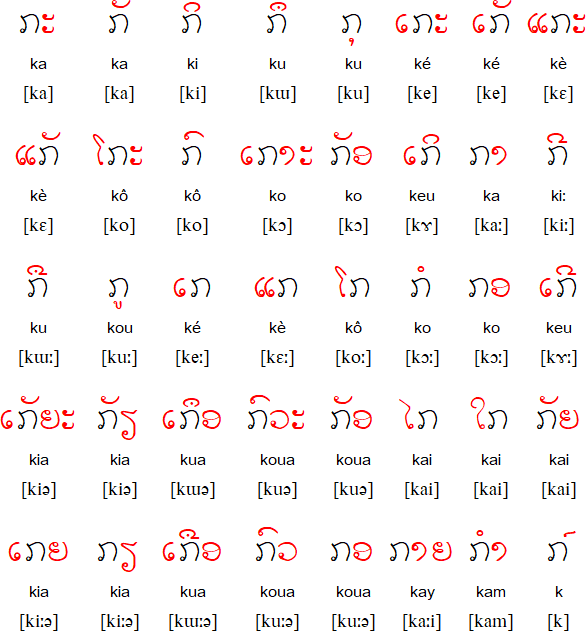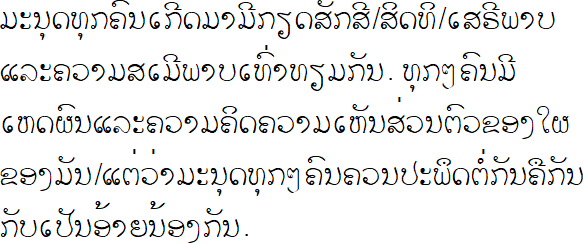Lao alphabet
Consonants
Consonants are divided into three classes which help to determine the tone of a syllable (indicated by the numbers below). The sounds represented by some consonants change when they are used at the end of a syllable (indicated by the letters on the right of the slash below). The consonants can all be used at the beginning of a syllable but only some can be used at the end of a syllable.
The consonants in the final row are compounds and conjuncts used as alternatives to the basic consonants.
Vowel diacritics (with k)

Numerals

Tone indication
| Open syllables | Closed syllables * | ||||
| unmarked | short vowel | long vowel | |||
| Class 1 | low | mid | high falling | high | low falling |
| Class 2 | low rising | mid | low falling | high | low falling |
| Class 3 | high | mid | high falling | mid | high falling |
Sample text

Transliteration
Manut thuk khôn kœ̄t māmīkẏat sâk sī, sitthi, sēlī phôp læ khwôm smœ̄ phôp thàw thẏam kân. Thuk thuk khôn mīhēt phôn læ khwômkhit khwôm hian swàn tôw khɔ̄̄ṅ phai khɔ̄ṅ mân, tǣ̀vồ manut thuk thuk khôn khwan paphʉt tàṁ kân khʉ̄ kân kâp pianốy nɔ̄́ṅ kân.
Translation
All human beings are born free and equal in dignity and rights. They are endowed with reason and conscience and should act towards one another in a spirit of brotherhood.(Article 1 of the Universal Declaration of Human Rights)
If There Any Question Please Visit This Site!!!!
Source: http://www.omniglot.com

Tidak ada komentar:
Posting Komentar